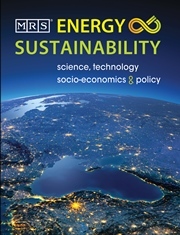doi: 10.1557/mre.2014.6, Published by Materials Research Society, 3 July 2014.
The article contains the following errors:
Page 23, left column, line 19.
The sentence should read:
Another requirement for the insulator is a small dielectric constant since for small area devices the capacitance is reduced, however due to the requirements for tunneling the ultra-thin thicknesses in turn increase capacitance, which has to be kept to a minimum as per Eq. (2).
Page 25, left column, line 1.
The sentence should read:
If the thickness of the higher electron affinity insulator is increased relative to the other insulator, then the QW will be wide enough to form resonant energy levels.
The author regrets these errors.


